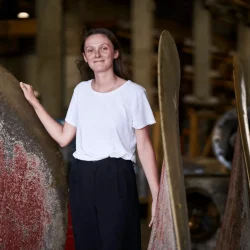Contenidos
“Thanks to this internship, I had the opportunity to collaborate in the software development automatization for post-processing CFD analysis. This period really allowed me to clear my mind professionally.”

INTRODUCTION
From Bordeaux, France, other of the wine lands per excellence, arrived Ines de Satrustegui, a Naval Engineering student from the UPC. She came for an internship to help our technical team in the development of a fatigue analysis projects. During her first’s years at the Engineering University of Nantes, she discovered a passion about naval studies. For this reason, she decided to come to Barcelona to continue her specialization.
INTERVIEW
Q: What made you come inside the marine world?
A: At the University of Nantes, I studied General Engineering and during those two years, I was able to take an optional subject that included several topics related to Naval Architecture. I realize about how much I liked this, and I decided to come to Barcelona to get a double degree, with a master’s in marine engineering with the Polytechnic University of Catalonia (UPC).
Q: Nantes, Barcelona, ¿and Vigo… How was the path to VICUSdt like?
A: While I was attending the Naval Engineering and Maritime Industry Congress in Palma de Mallorca last year, I participated in several interviewing sessions where different companies hay meeting with students, including VICUSdt. Later, Adrián Sarasquete contacted me because I studied about CFD (Computational Fluid Dynamics) software topics. It was there that the opportunity arose to do a summer internship in Vigo with them.
Q: What did this call mean to you?
A: Receiving that call was very surprisingly for me. It was a great personal and professional opportunity. I was very interested in being able to do my internship in a company specialized in CFD analysis services.
Q: Several months doing an internship with VICUS, what projects did you work on?
A: Since my arrival on July, I join the team in charge of the development of a fatigue analysis project. In the initial phase, I was focus on the examination of regulations and fatigue calculation methodologies. This involved a thorough comparative analysis of various regulations pertaining to propeller fatigue and ship components. Subsequently, I meticulously transcribed this information into Excel, ensuring the preservation of all criteria throughout the data collection process.
Then, I actively participated on a software development, specifically Python code, aimed at automating the post-processing of Computational Fluid Dynamics (CFD) analyses. This automation was tailored to facilitate the fatigue analysis of propulsion components, such as propellers, in a seamless and efficient manner.
Q: And what is the importance of this project?
A: The main objective is to optimize the geometry of the propellers. So, everything can be plotted at the same time, and you can go back and forth to modify the geometry if its needed.
Mainly, we were working on code automatization, because nowadays all these processes are quite manual and must be launched one by one for each propeller project. My work was basically to make a kind of main code, based on all the already existing files, which will give more direct results. In other words, it will simplify the entire process, yielding a result, without having to do independent steps.
Really, this software could make life easier for those who use code on a daily basis, because once it will operational, the functions will be easily carried out on the computer, and this would save a lot of time for other tasks.
Q: To sum up, how was your experience at VICUSdt?
A: I really wanted to try the working life in Spain and to learn and learn about other areas of Naval Engineering, specifically about CFD, since I only had theoretical knowledge.
Thanks to this internship, I have been able to use concepts that I had learned during my degree. As well as confirming that many of the things I had learned, but didn’t understand their use in the past, are crucial for propulsion design and shape optimization. My colleagues have shown me that having a broad range of knowledge is essential.
In summary, I’ve had the chance to orient myself and gain a much clearer understanding of my professional path ahead.
QUESTION FOR ADRIAN SARASQUETE
Q: To the general manager of VICUS: what does it mean for VICUSdt to have students during their internship?
A: At VICUSdt we love giving opportunities to university students during their degree, masters or doctoral studies to carry out their internships in our offices. As it was Ines case, our last intern who helped us with the development of software to automate the CFD analysis for post processing propellers.
It is an enriching experience in both directions: we both try to get as much learning as possible — on a technical and personal level—, since it is usually their first work experience. We can incorporate personnel from different disciplines, and it is an excellent source of talent acquisition.
